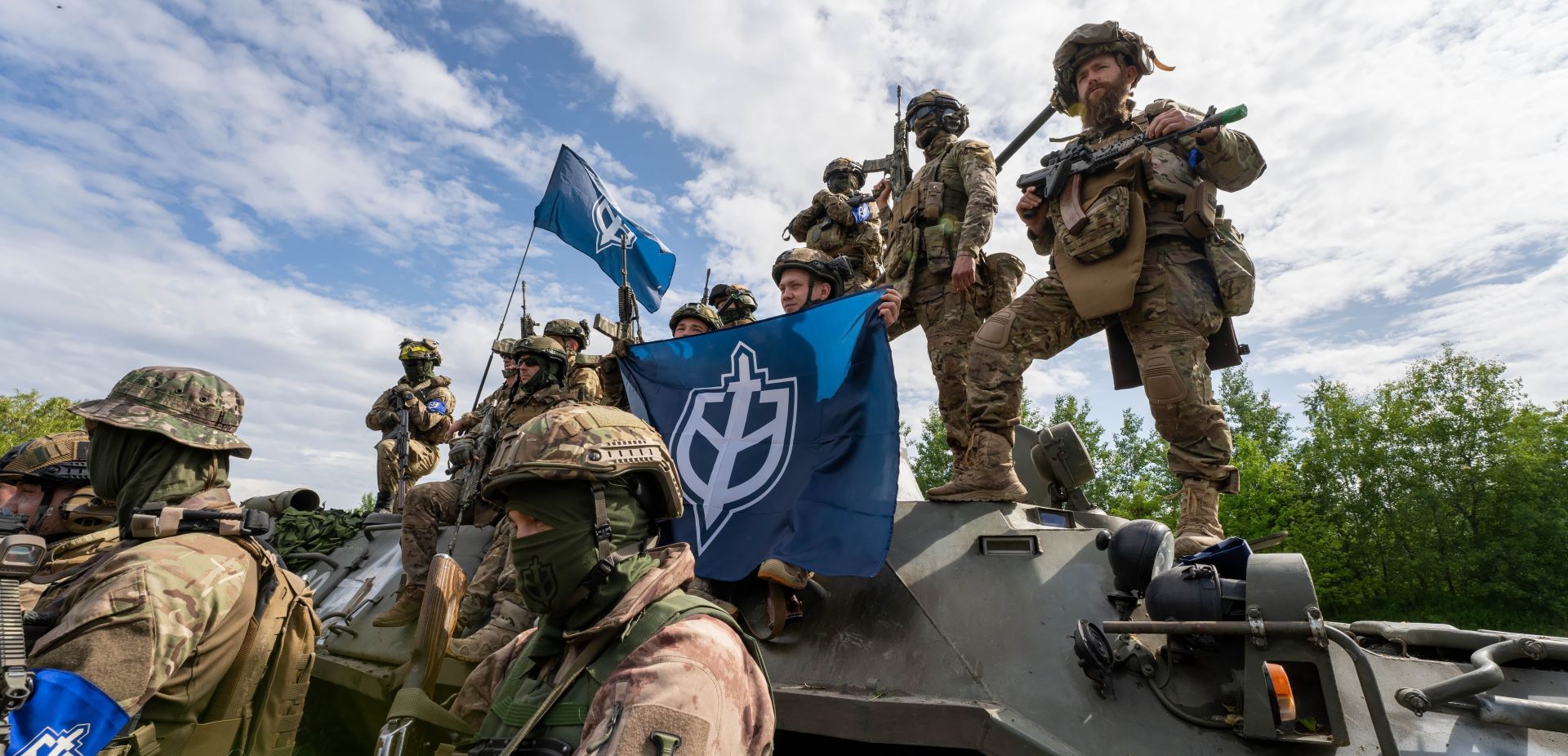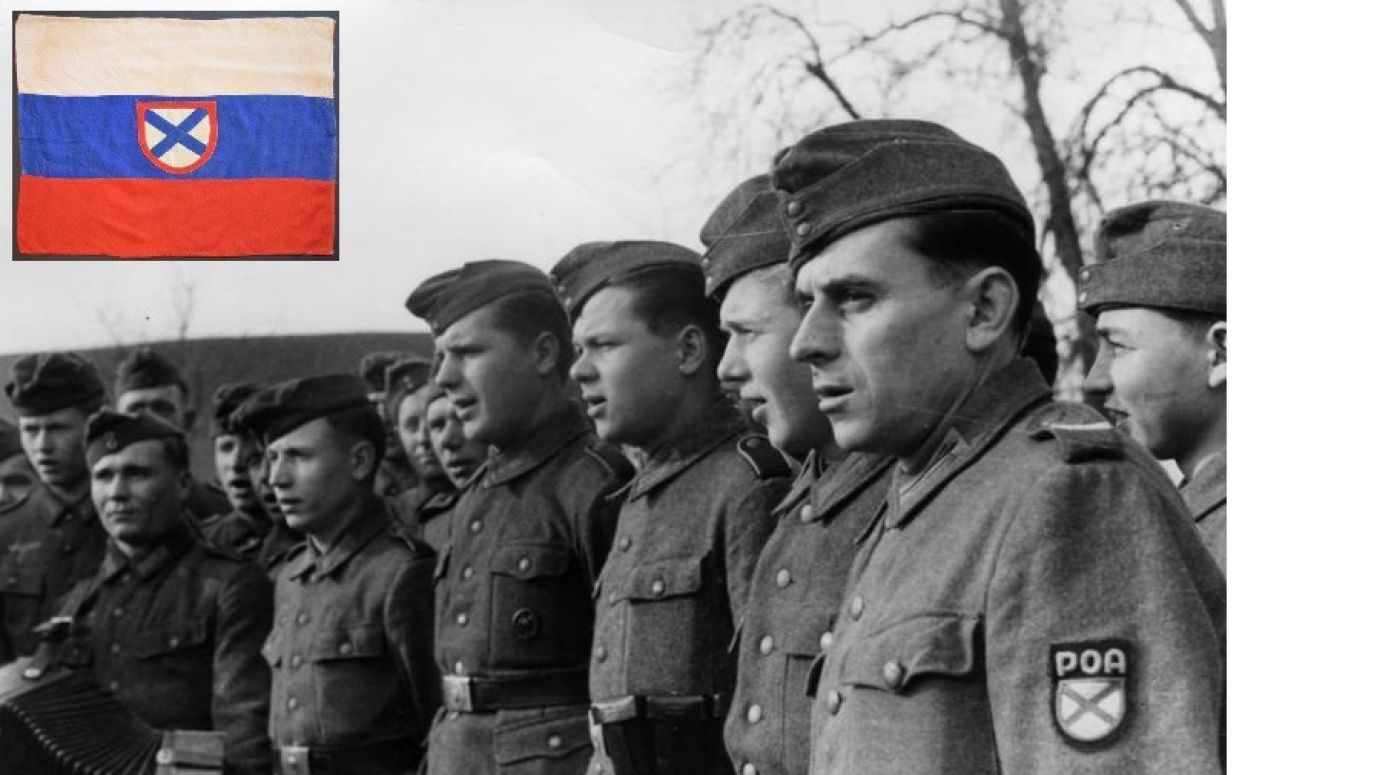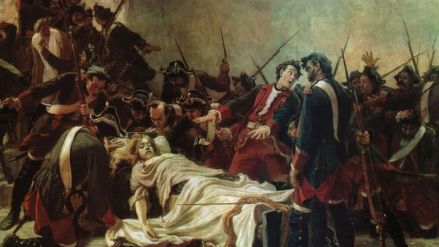As for others known by name – Anatoly Sergeevich Zyrenov from 58th RF Army stationed in Cchinvali in occupied part of Georgia; Aleksey Alexandrovich Skameykin from 70th Motorized Rifle Regiment in Chechen Shali and dozens of others one can see on “Telegram’s” channels – they are merely young privates. They have probably survived “the wave” [“dedovshtshina”] in the army and a nightmare of the poorly prepared offensive. They do not have parents already, they do not have girlfriends yet, so they joined the Legion. They are not famous enough to inspire anyone with their example.
But on the other hand are they so different from a typical Polish 20-year-old living somewhere around Jasło or Błonie, forcibly enlisted by Austrian army, then taken captive by the French and sent to serve under Kniaziewicz or Dąbrowski?
 SIGN UP TO OUR PAGE
SIGN UP TO OUR PAGE 
Apart from Kosik, another higher officer known by name is the supposed commander of the Corps Denis Nikitin vel Kapustin. But also in this case one is tempted to deem it a cover-up or a discreditation attempt: even if we are sceptical of Russian reports, “Spiegel’s” articles and claims of the usually well-informed website SchengenVisa.com, Nikitin/Kapustin remains a perfect image of a “far-right” activist: a former member of sport fan’s gang and an enthusiast of martial arts, a believer in “Russia for Russians” slogan and a producer of T-shirts with an “88” neo-Nazi puzzle. If he has grown in wisdom and nobility lately, he has kept this fact to himself.
An advancing Gulag
Against the claims of Moscow’s propaganda all of the above does not mean that Corps’ members are solely far-righters. In one of a few longer articles on this formation Roman Popkov, a Russian correspondent of Belsat, quotes anarchists and libertarians, human rights defenders and conservatives sounding exactly like Russian “cadets”, or members of Constitutional Democratic Party, from before 110 years. “I’m right-wing, but it is of no consequence now. Russia is a burnt-out land, you cannot be right-wing or left-wing there. You can be either a cop or a cop’s victim. We have left this neo-Soviet Gulag to go to Ukraine, but it is still on our heels. He [Putin] wants to make Ukraine another barrack in the camp like Russia. So enough of escaping, it is time to stand up and fight for our life and our honour”, says one of the interviewees in Belsat’s report. And his sentiments are repeated by interviewees of the AP and Reuters.
These are important words from the mouth of a 20-year-old, they can even serve a motto of a life and death struggle – but not a political programme for “the new Russia”. And we still know nothing about political views of those new formations.
So-called “Irpin declaration” signed on August 31st 2022 by the Legion, the Corps and even more enigmatic “National Republican Army” is merely a commitment to act together. The promised joint political centre has never been created; silent is also its supposed representative, 48-year-old Ilya Ponomarev, a man with extensive political experience (he has been a member of the Left Front and Gennady Zyuganov’s RF Communist Party, a deputy of oppositional Just Russia, a businessman in Yukos and a beneficiary of an affluent Skolovo Foundation).
The Corps went one step further, in a memo of November 2022 declaring recognition of the 1991 Ukrainian borders (important), support for the tribunal for war perpetrators (rather important), “a total reform of RF’s political system” (important, but what does it mean?) and “recognition and abiding by the right to self-determination of the RF nations” (extremely important).
But half a year has not brought any more details. And again we do not know the reason: is it the impermeable Ukrainian filter (“first prove yourself, then you will talk politics”), the divides between the eloquent but helpless emigrant Russian opposition and military men, not so fluent in discussions on political systems but sweating hard on exercise grounds – or maybe something else.
And yet – silent, divided and disorganized – 10 days ago they advanced on Kozinka and Grayvoron. We can expect other successful actions. And together with them the increase of the Legion and the Corps’ importance – both as formations active on the frontline and as a sign that Russians themselves can weaken Putin’s regime. In consequence they could become a partner in negotiations with the West and (a bit later) with Ukraine, able to demonstrate not only declarations, but also some trump cards in the form of cities they captured, formations they pulled on their side, the blood they shed.
Civil war scars
So the stake is high. But also great is the challenge facing Russian anti-Putin formations. And so are the problems – not only military ones (can anyone seriously envision a march on Moscow?) or related to supplies (Ukraine depends on weapons sent by the stingy West and Russian formations can count only on what they receive from Kyiv), but especially political and psychological.
Because battles of the Legion and the Corps with the regular Russian Army will not be just fratricidal fights, even though such clashes are among the most horrible, the most cruel and the most devastating both for the combatants and their country of origin. To wage of a civil war requires extraordinary hatred because one has to fight against „their own”.
The march on Belgorod and Moscow would be even more horrible than an “ordinary” civil war, like the one Russia has experienced on an immense scale in the years 1917-21. It would be an expedition in alliance with a state and a nation with which Russia is de facto at war.
Of course, this war was started by Russia under the pretence of a “special operation”. Here Russia was the aggressor and the perpetrator – and should be punished.
But still.
Everyone who defies hated authorities governing their homeland tries to avoid doing it at any price. British supporters of Stuarts, though they availed themselves of the French king’s backing, did their best to not to land on the island’s shores arm in arm with French expeditionary corps (not always successfully). Several decades later French royalists, although understandably they had to accept help of monarchic Europe advancing on Jacobin France, tried to march „alongside” and act independently. And similarly many other formations and nations, from Greeks to Garibaldians.
Our folk and the others
Because so it is in this world. Quoting last lines of the famous Polish novella by Stefan Żeromski, we could name it “the curse of Wyszków parsonage”.
„He who has brought an ancient enemy to his – even sinful and evil – motherland; he who trampled on it, plundered it, burnt it, pillaged it with the hands of foreign marauders – he divested himself of his homeland. It cannot be anymore his home or place of his rest”.
Of course citing this fragment is an act of a very risky reinterpretation. Ukraine is not Russia’s “ancient enemy” and its army would rather not cross RF’s borders – not to mention “burning and pillaging” of Russian soil. But basic, tribal, black-and-white loyalties – “our folk” and “strangers” – immediately come to mind in such situation, along with horror at the thought of “ours marching hand in hand with strangers”.
Poland has known civil wars, but not so horrible. Legionaries of Dąbrowski and Piłsudski or insurgents of the January Uprising did not fight with Polish government (even a brutal and corrupted one), but with occupation authorities. Even when put before firing squads, hanged or sent to Siberia they were not perceived by their kinsmen as “traitors”, but rather (at the worst) as “lunatics”. Those few who allied with foreign rulers – like Hieronim Radziejowski and supporters of Targowica Confederation – inhabit the ninth circle of the national hell.
Russians, however, in a relatively close history had a “formation created and fighting side by side with their mortal enemy”. Paradoxically this tragic formation, crushed by historical necessities as if by millstones, has never clashed with the Red Army – if we do not count a two-day-long battle on Odra river in April 1945. What I have in mind is of course General Andrey Vlasov’s Russian Liberation Army (ROA).
Destructive insult
On no account should it be confused with RONA (“Russian National Liberation Army”) composed of gangsters and degenerates, created under the auspices of SS by Bronislav Kaminski and responsible for Wola and Ochota Massacre in August 1944. Even historical publicists in Poland sometimes mix these two formations despite their different origins, political affiliations in the Third Reich and composition: RONA (like Wagner group) accepted criminals, ROA – half-starved PoWs and idealists who dreamt of overthrowing Stalin. Vlasov’s formation did not even station in Germany-occupied Poland. Still despite many years of educational efforts one sometimes can hear in Poland that “Vlasovtsy” were responsible for crimes committed by Nazis. In Russia the term is universally known – as are the circumstances of general Vlasov and his men’s death by hanging in Lubyanka. “I have lost and so they will call me a traitor until freedom prevails in Russia over Soviet patriotism” he said allegedly right before being handed over to Soviets by Americans.


 SIGN UP TO OUR PAGE
SIGN UP TO OUR PAGE 





